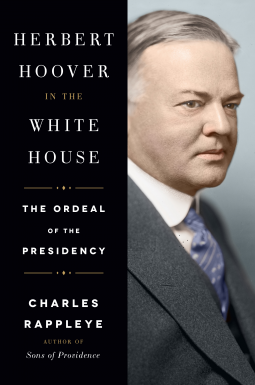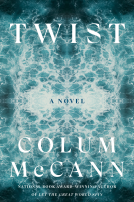
Herbert Hoover in the White House
The Ordeal of the Presidency
by Charles Rappleye
This title was previously available on NetGalley and is now archived.
Buy on Amazon
Buy on BN.com
Buy on Bookshop.org
*This page contains affiliate links, so we may earn a small commission when you make a purchase through links on our site at no additional cost to you.
Send NetGalley books directly to your Kindle or Kindle app
1
To read on a Kindle or Kindle app, please add kindle@netgalley.com as an approved email address to receive files in your Amazon account. Click here for step-by-step instructions.
2
Also find your Kindle email address within your Amazon account, and enter it here.
Pub Date May 10 2016 | Archive Date May 10 2016
Description
“A deft, filled-out portrait of the thirty-first president...by far the best, most readable study of Hoover’s presidency to date.” —Publishers Weekly
Rappleye’s surprising portrait of a Depression-era president Herbert Hoover reveals a very different figure than the usual Hoover, engaged and active but loathe to experiment and conscious of his inability to convey hope to the country.
Herbert Clark Hoover was the thirty-first President of the United States. He served one term, from 1929 to 1933. Often considered placid, passive, unsympathetic, and even paralyzed by national events, Hoover faced an uphill battle in the face of the Great Depression. Many historians dismiss him as merely ineffective. But in Herbert Hoover in the White House, Charles Rappleye draws on rare and intimate sources—memoirs and diaries and thousands of documents kept by members of his cabinet and close advisors—to reveal a very different figure than the one often portrayed. The real Hoover, argues Rappleye, just lacked the tools of leadership.
The Hoover presented here will come as a surprise to both his longtime defenders and his many critics. In public Hoover was shy and retiring, but in private he is revealed as a man of passion and sometimes of fury, a man who intrigued against his enemies while fulminating over plots against him. Rappleye describes him as more sophisticated and more active in economic policy than is often acknowledged. We see Hoover watching a sunny (and he thought ignorant) FDR on the horizon. FDR did not “cure” the depression, but he experimented with steps that relieved it. Most importantly he broke the mood of doom almost immediately. The Hoover we see here—bright, well meaning, energetic—lacked the single critical element to succeed as president. He had a first-class mind and a second-class temperament.
Herbert Hoover in the White House is an object lesson in the most, perhaps only, talent needed to be a successful president—the temperament of leadership.
Rappleye’s surprising portrait of a Depression-era president Herbert Hoover reveals a very different figure than the usual Hoover, engaged and active but loathe to experiment and conscious of his inability to convey hope to the country.
Herbert Clark Hoover was the thirty-first President of the United States. He served one term, from 1929 to 1933. Often considered placid, passive, unsympathetic, and even paralyzed by national events, Hoover faced an uphill battle in the face of the Great Depression. Many historians dismiss him as merely ineffective. But in Herbert Hoover in the White House, Charles Rappleye draws on rare and intimate sources—memoirs and diaries and thousands of documents kept by members of his cabinet and close advisors—to reveal a very different figure than the one often portrayed. The real Hoover, argues Rappleye, just lacked the tools of leadership.
The Hoover presented here will come as a surprise to both his longtime defenders and his many critics. In public Hoover was shy and retiring, but in private he is revealed as a man of passion and sometimes of fury, a man who intrigued against his enemies while fulminating over plots against him. Rappleye describes him as more sophisticated and more active in economic policy than is often acknowledged. We see Hoover watching a sunny (and he thought ignorant) FDR on the horizon. FDR did not “cure” the depression, but he experimented with steps that relieved it. Most importantly he broke the mood of doom almost immediately. The Hoover we see here—bright, well meaning, energetic—lacked the single critical element to succeed as president. He had a first-class mind and a second-class temperament.
Herbert Hoover in the White House is an object lesson in the most, perhaps only, talent needed to be a successful president—the temperament of leadership.
Available Editions
| EDITION | Other Format |
| ISBN | 9781451648676 |
| PRICE | $32.50 (USD) |


















